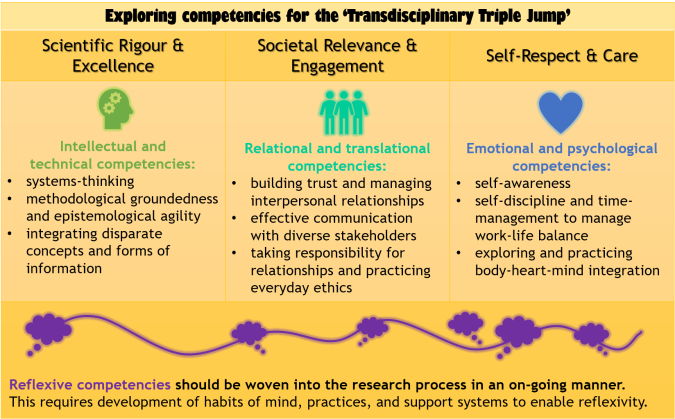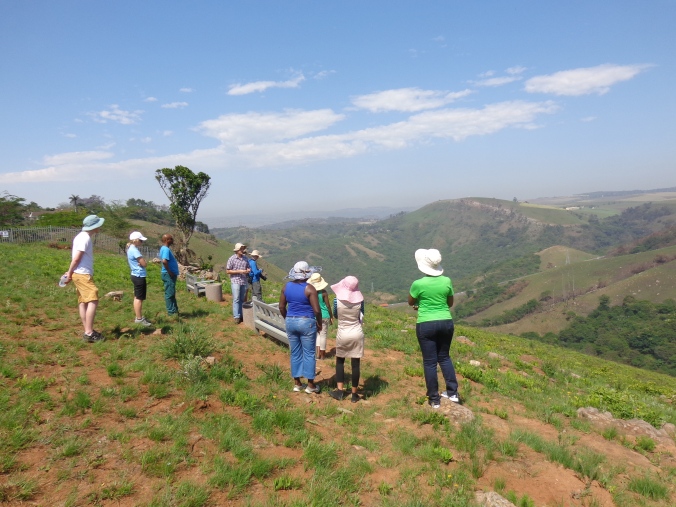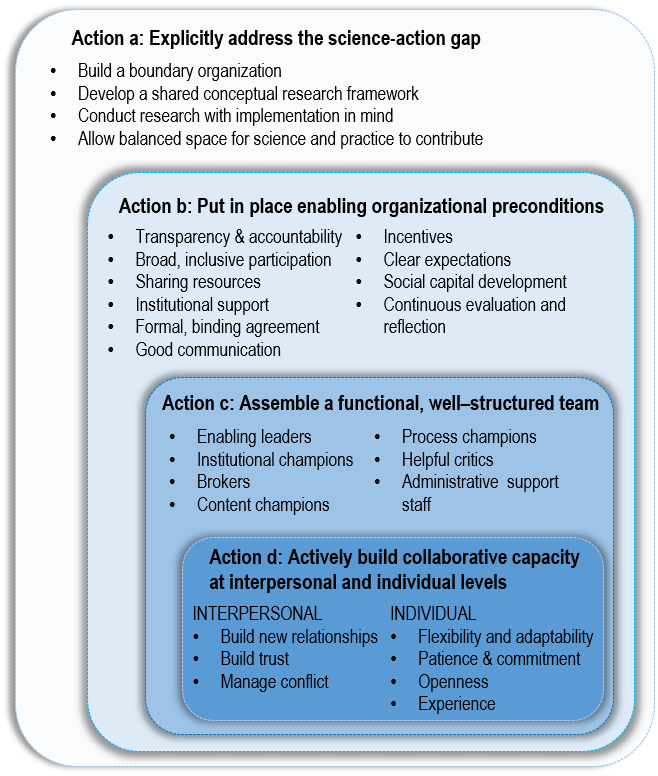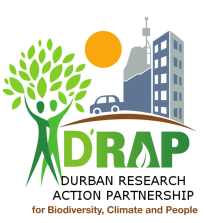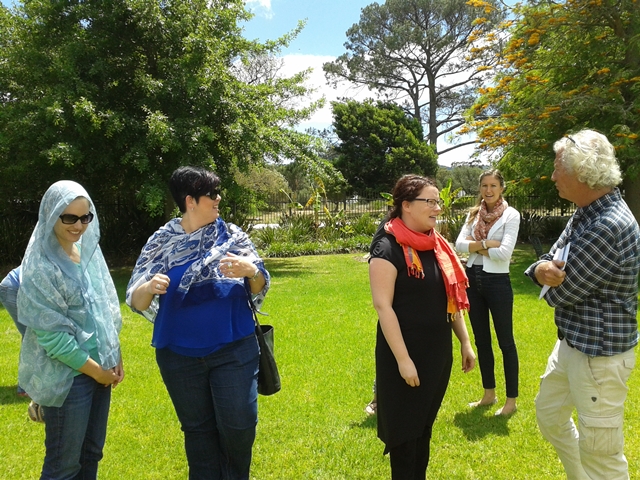This is the fourth post in the series on ‘Transdisciplinary PhD Journeys’.
My name is Petra Holden. I recently completed my PhD at the Plant Conservation Unit at the University of Cape Town (UCT). I am now a postdoctoral research fellow at the African Climate and Development Initiative at UCT.
In my PhD, I used a transdisciplinary approach to understand the long-term influence of conservation (specifically a protected area) on fire, land use, vegetation cover and water flows in a mountain catchment important for regional water supplies and of significant biodiversity importance in the Western Cape, South Africa. I used multiple disciplines (including ecology, social sciences, hydrology, geomatics, and environmental geography) as well as associated tools (GIS, mixed methods, hydrological modelling, remote sensing and scenario planning) on which I based my chapter specific literature, theory and methods.
Simply put, my PhD involved doing vegetation surveys, orthorectifying and classifying hundreds of aerial images, conducting in-depth interviews with landowners and using a hydrological model to run multiple scenarios of the changing landscape to understand the influence on water flows. In addition to this and to inform these latter processes I engaged in an unstructured way with managers, landowners and organisations to address a topic/theme/problem that was of interest to them i.e. co-developing the research focus. Lastly, I integrated landowner knowledge directly into the findings of the thesis i.e. used different types of knowledge sources.
My main struggle as an individual transdisciplinary PhD student was around the constant need to balance the demands of individual disciplines in academia. This included managing tensions between disciplinary perspectives (linked to theoretical framings, methods, and epistemological and philosophical viewpoints). It also included the need to constantly justify why I was framing my thesis around transdisciplinarity instead of zooming into the disciplinary research aspects. I had to fully immerse myself in the different disciplines to accommodate the different and detailed disciplinary perspectives and guidance that I received. I had to develop strong negotiation skills to present my work to individuals with different disciplinary backgrounds, specifically since my home department was Biological Sciences. I felt like I was constantly being pulled in many directions between disciplinary preferences on “appropriate” data, methods, and analyses.
I wanted to conduct a model process for protected area impact evaluation that promoted disciplinary rigour, longitudinal perspectives and integrated research and knowledge (Von Wehrden et al 2017; Isgren et al 2017). But on reflection, the stringency applied and efforts required to uphold disciplinary rigour within individual disciplinary components came at a cost and was an inhibitor to meaningful engagements with actors outside academia. This especially included the integration of my results back into the landscape and driving change. It is likely that tensions to uphold disciplinary rigour within disciplines can at times sideline other elements of transdisciplinarity such as co-creation, co-design, knowledge integration and research impact (i.e. driving change / transformative research), especially for an individual researcher.
Reflecting on my transdisciplinary PhD process leaves me with two key interlinked questions:
- Should individuals conducting transdisciplinary research at the postgraduate level be expected to fully immerse themselves in the theory and methods of individual disciplines?
- Or, should we as a group of transdisciplinary researchers focus on harnessing relevant theory and methods from individual disciplines and package this information as guides, tools and tool sets for accelerating use in transdisciplinary research?
I realise that there is not one “ideal” way to conduct transdisciplinary research (Mitchel et al 2014) and this will definitely differ between groups and as individual PhD students. It comes down to circumstances which can create enabling or inhibiting conditions for achieving the different elements of transdisciplinarity (e.g. see Creating meaningful transdisciplinary collaborations during the limited time of a PhD). These circumstances are characterised by multiple influencing factors that include individual transdisciplinary competencies (e.g. see What does it take to be a transdisciplinary scholar? Exploring competencies for the ‘transdisciplinary triple jump’) as well as resource availability.
Competencies can be a mixture of inherent and learned competencies i.e. learned from past experiences, learned during the PhD process, or still to be learned in future work. Resources can be both personal and for the current research project. Resources can include interconnected aspects such as a strong social network and support, financial resources, and human resources amongst other aspects. Resource availability can also influence the level of competencies an individual has acquired through experience or can acquire during their PhD.
An institutional understanding of the field of transdisciplinarity is something that has not been achieved and this creates immense pressure on individuals conducting transdisciplinary research at postgraduate level. I am of the view that transdisciplinary research is more than individual disciplines and that there is a need to develop tools for harnessing disciplines in a practical way for transdisciplinary postgraduate research to be applied to drive change. Sometimes you do not need to know the equation to understand and use the code… and sometimes you do not need to review the contrasting theoretical frameworks to apply a suitable framework that suits a specific research situation.
Author of this blog post:

Petra Holden
Postdoctoral scholar at the African Climate and Development Initiative, University of Cape Town, South Africa.
Learn more about Petra on this website
References
Isgren, E., A. Jerneck, and D. O’Byrne. 2017. Pluralism in Search of Sustainability: Ethics, Knowledge and Methodology in Sustainability Science. Challenges in Sustainability 5:2–6.
Mitchell, C., D. Cordell, and D. Fam. 2014. Beginning at the end: The outcome spaces framework to guide purposive transdisciplinary research. Futures. Elsevier. 65:86–96
Von Wehrden, H., C. Luederitz, J. Leventon, and S. Russell. 2017. Methodological Challenges in Sustainability Science: A Call for Method Plurality, Procedural Rigor and Longitudinal Research. Challenges in Sustainability 5:35–42.
